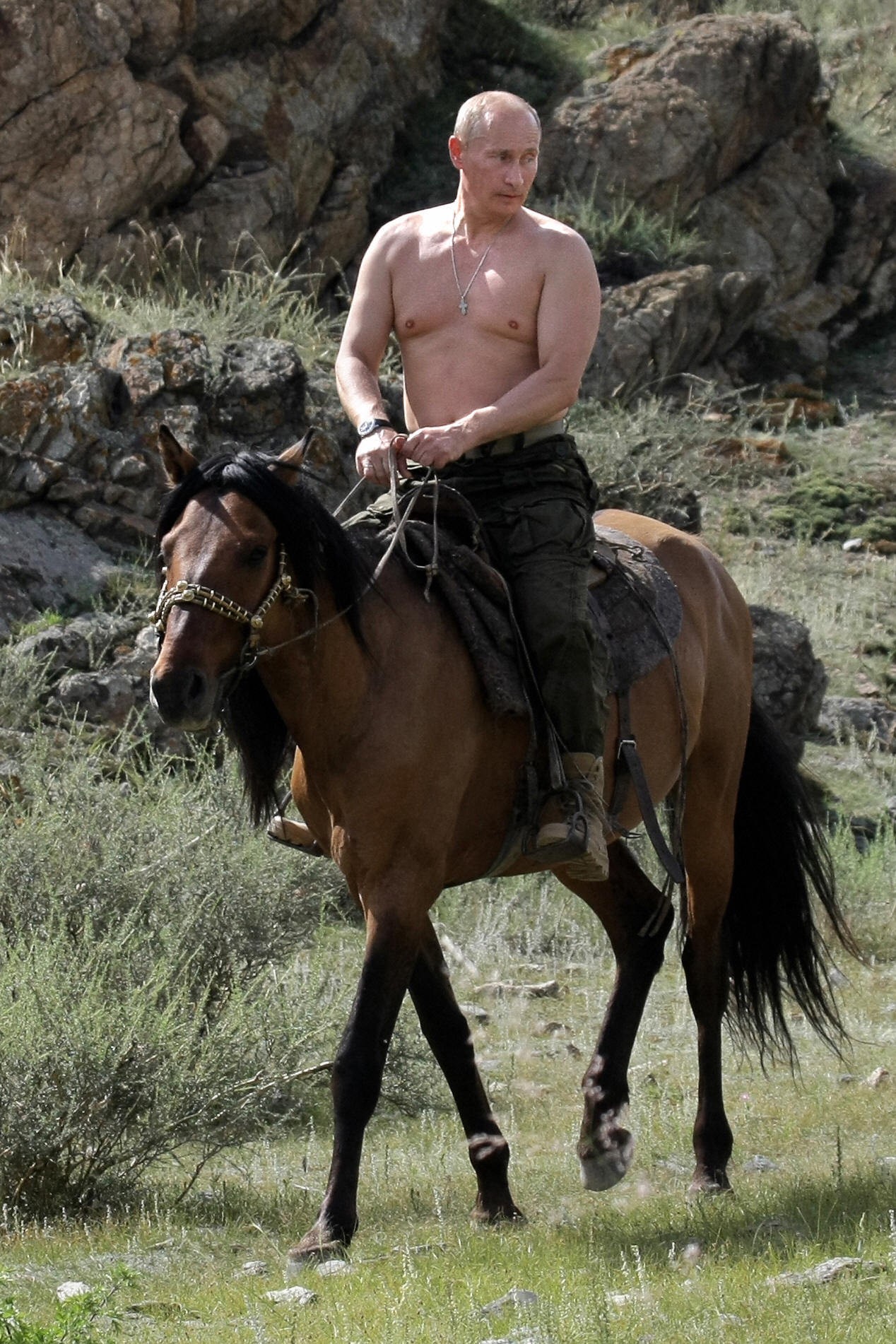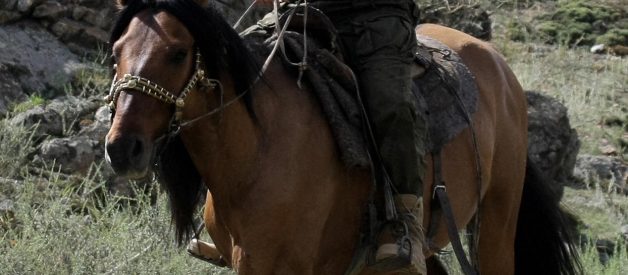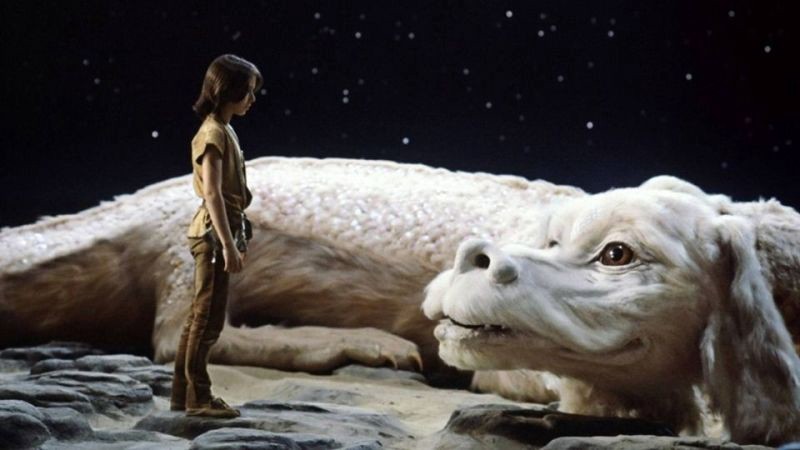 Atreyu and Falcor
Atreyu and Falcor
I grew up in the 1980s, and so, like many of my generation (late gen-X, early millennials), I saw The Neverending Story. This movie made a huge impact on me, not least of all the scene where the horse Artax dies, slowly sinking in the swamp of sadness, while his master Atreyu watches powerlessly?a clever metaphor for depression and suicide of a loved one. But here, don?t want to talk about the movie, I want to discuss the book. I read the book The Neverending Story (by Michael Ende, originally, Die Unendliche Geschichte, 1979) only recently as I bought it as a night time story book for my son.
To my surprise, I noticed that the movie only contains half the book! This is in a sense understandable, given how rich and complex the book is. But if you only know one half, you miss the philosophical claims of the entire story. So here is my analysis of Ende?s story. Multiple spoilers to follow.
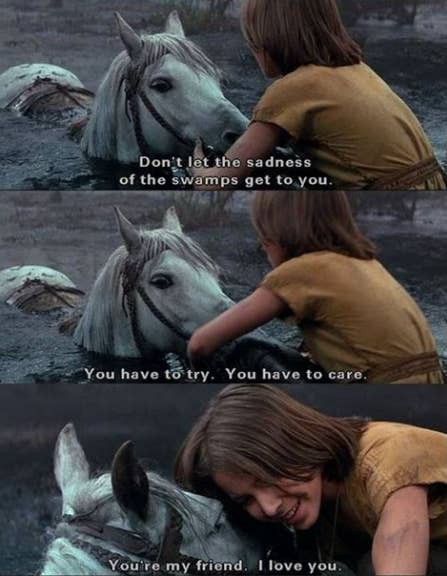
Children are natural philosophers. They spontaneously ask themselves such questions as: can there be such a thing like ?nothing? in nature? What would it look like? What would it mean for a country to have no boundaries? Is having no boundaries the same as infinity? Are creatures in stories real? If so, what is their reality? Can you create something eternal? Ancient philosophers such as Aristotle, Empedocles, Thales, Democritos, already asked such questions.
Ende?s book addresses them by imagining a fantasy land (Fantastica). The story of Fantastica is a story within the story, as the protagonist is a boy called Bastian Balthasar Bux, son of a dental technician who seems uninvolved with his child after the untimely death of his wife (Bastian?s mother). Bastian is fat, bow-legged, not particularly academic, bad at sports, and is relentlessly bullied at school. One day, as he is pursued by bullies, he flees into a bookshop, steals a book (The Neverending story), and reads it voraciously while hidden in the school?s attic. The book is about Fantastica, where not all is well. Its Childlike Empress has fallen mysteriously ill. Connected to her illness is a devastating force, (the Nothing) that eats away at the boundless country of Fantastica. The creatures throw themselves into the Nothing in a bout of frenzy, reminiscent of the medieval Danse Macabre.
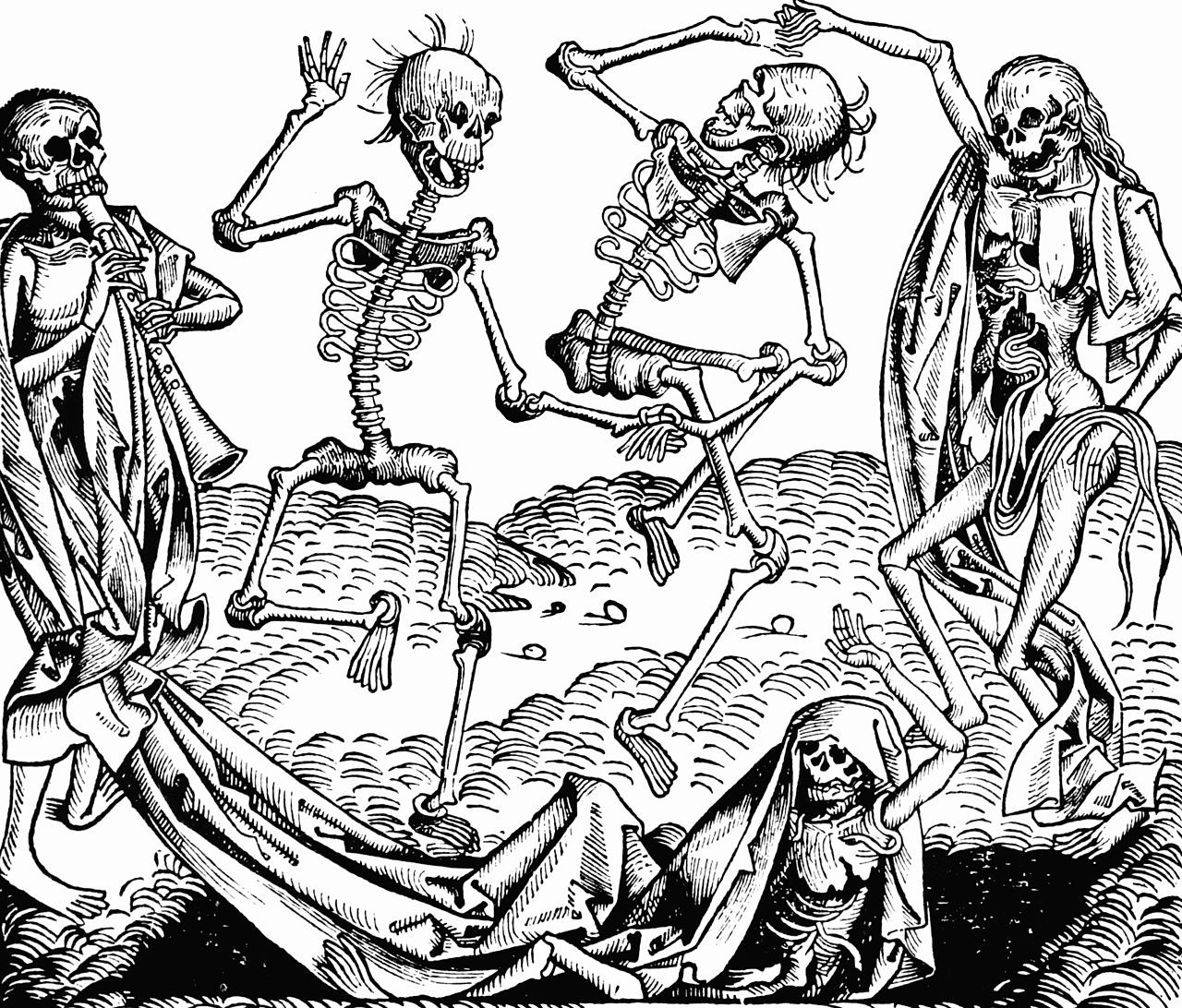
Crucial to understand the story is that Michael Ende is German, born in 1929, so he consciously lived world war II and its devastating effects. What happens when Fantasticans jump into the Nothing is that they turn into lies in our world. Lies are dangerous because they lead to people believing them, and clinging to authoritarian regimes.
Sounds familiar? The worry that authoritarians use lies to consolidate their power was foremost in Ende?s mind. His father, the surrealist painter Edgar Ende was forbidden by the Nazis to exhibit his work from 1936 onwards. They claimed his work was ?degenerate?. He was conscripted into the Luftwaffe. Most of his work was destroyed in a bomb raid. A rare surviving example below.
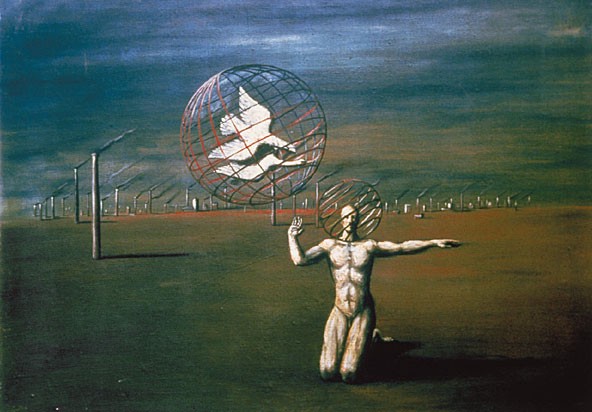 Rare Edgar Ende painting
Rare Edgar Ende painting
How to stop the devastating Nothing? The hero Atreyu (clearly modeled on whatever knowledge Ende had of Great Plains American Indians) and his luck dragon Falcor (clearly modeled on Chinese dragons) goes on a long and dangerous quest to find out the cure for the Childlike Empress. Along the way, Bastian slowly realizes he is not merely reading a book. He is part of it. It is up to him, a human being, to save Fantastica, by giving its ill Empress a new name. Bastian has a lively imagination and immediately comes up with a new name. But Bastian?s lack of self-regard is so strong that he almost doesn?t make it. All he has to do is call her name, but he is afraid the Fantasticans will laugh at him too. Fantastica is almost entirely destroyed (save for one grain of earth) before he finally calls out her new name.
Thus far, the moral of the story might simply be: use your imagination! This was the takeaway message I got as a child, seeing the movie.
However, this is only half the story. The idea that Fantasticans, let loose in our world, turn into pernicious lies, indicates Ende does not just think any imagination will do. Rather, the book is about the proper relationship between imagination and reason. In this respect, Ende is an heir of Enlightenment thinkers such as Immanuel Kant. Contrary to some recent popularizing works (e.g., Pinker), Enlightenment is not just cheerleading about the power of human reason. It is about the limits of reason and its proper relationship to other human endeavors, such as religious belief, emotion, imagination, scientific study, sensory observation. Several times in the book, it is mentioned how Fantastica and our world are both well if humans visit Fantastica, and then come back to our world. Reason without imagination cannot be well. This is crucial, as we will see.
In the second half of the book (not in the film) Bastian creates Fantastica anew. He can do what he wishes, protected by the amulet Auryn which gives him amazing strength and ability. It also gives him the physical shape he wants: no longer short, bow-legged and fat, but tall and athletic. Clearly, Bastian loathes himself (as he truly is), and this self-loathing distorts his relationship to Fantastica. His wishes are clear wish-fulfillment that slowly erode his sense of identity. Each wish he makes, he loses part of his memory. Soon, Bastian falls under the spell of a cunning witch who aims to use him for her own purposes. He loses his friends (Atreyu and the luck dragon Falcor) as he turns against them. Bastian?s lack of memories and proper self-respect ultimately propel him to almost crown himself Childlike Emperor of Fantastica. After all, the Childlike Empress (who disappeared without warning) has given him Auryn and all his wishes come true. Isn?t this a sure sign he is her successor?
Here we see Ende?s bleak vision of human nature in full display.
Anyone, even a timid boy and harmless like Bastian, has delusions of grandeur if the relationship between your imagination and reason is not in balance. Bastian later visits the City of Old Emperors where all humans reside who once tried to crown themselves as Emperor or Empress of Fantastica. They are a sorry lot?unable to wish, because they do not know themselves, entirely wrapped up in their delusion.
Any improper relationship then, between imagination and reality, results in the dangers of authoritarianism. If imagination is taken for reality (as the Fantasticans who jump into the Nothing) they turn into lies that are used to beguile people into authoritarian fantasies. If people who visit imagination do not ground themselves properly in reality, they lose all sense of proportion and become dangerous authoritarians.
The solution to this is not only to be properly grounded in reality, but also a true and proper love of oneself, love not of some image of oneself as powerful and beautiful, but the way one really and truly is. The Neverending Story then, is also a story about and finding one?s true self, which is not being remote from friendship and connection, and one?s history but rooted within it, and finding peace and accepting who one is. Lack of proper self-love, Ende warns, is the road to megalomaniac leadership where one wants to best everyone and it?s never enough (see picture below, undoubtedly, other pictures come to mind). In sum, Neverending Story is hugely relevant today.
